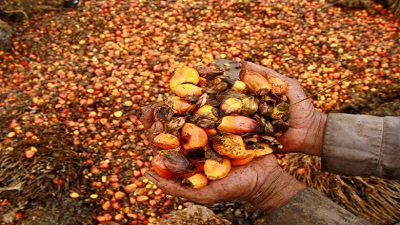In 2016, seven African countries pledged to protect their rain forests by moving to sustainable palm oil production.
In a statement from the World Economic Forum, (WEF) it said that the seven governments had agreed to “protect over 70% of Africa’s tropical forests” from unsustainable palm oil practices.
The Central African Republic, Côte d’Ivoire, Democratic Republic of Congo, Ghana, Liberia, the Republic of Congo and Sierra Leone were due to sign a joint declaration at the COP22 climate change talks in Marrakesh, Morocco, on Wednesday.
According to the statement, the seven countries represent over 250 million hectares of tropical forest, 13% of the world’s total and 70% of the total rain forest in Africa.
WEF said the pledge was being supported by some of the world’s largest producers, buyers and traders of palm oil, who along with NGOs and human rights groups, are partners of the Tropical Forest Alliance 2020 (TFA 2020) and have welcomed the move. The secretariat of the TFA 2020 is hosted at the World Economic Forum.
The statement added that the ministers of agriculture and environment, who were to sign the pledge, had agreed to “place sustainability, human rights and collaboration with industry, indigenous peoples and civil society groups at the heart of the expanding palm oil industry in Africa”.
Palm oil is the most widely used vegetable oil worldwide and about half of all packaged products sold in supermarkets contain palm oil, according to the World Wildlife Fund. It fuels a $50 billion global industry, which is projected to rise to $88 billion a year by 2022.
With growing demand, Africa is regarded as the next growth spot for palm oil production, but that often comes at the cost of deforestation and associated carbon emissions and global warming.
Read the full article here.
Read all the past stories on WEF here.
– By ANA


